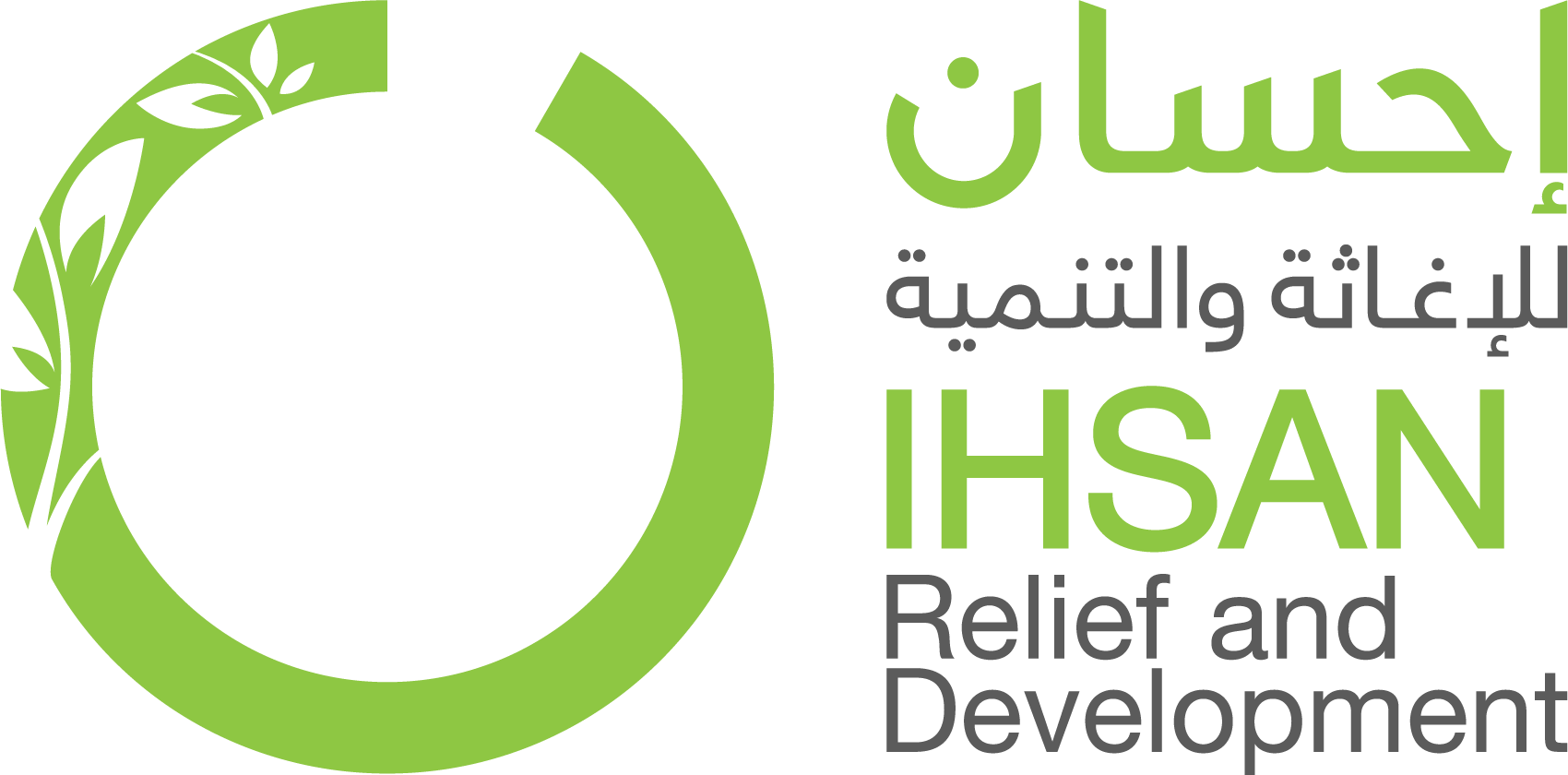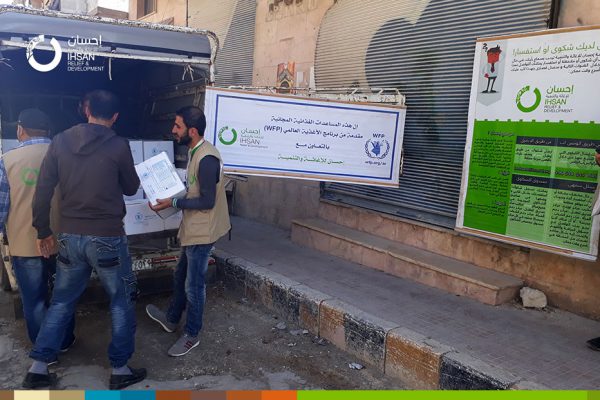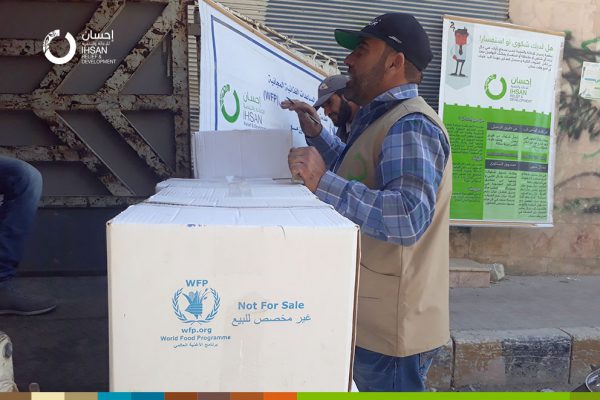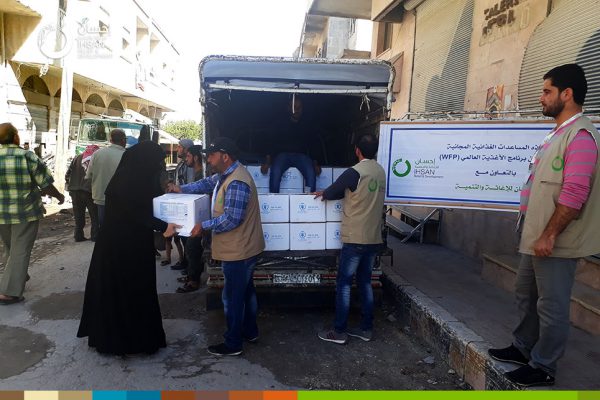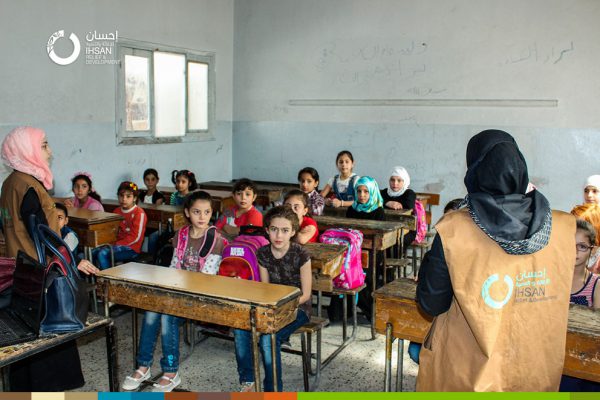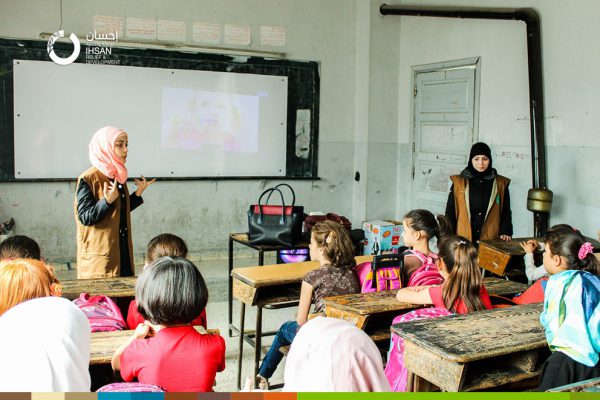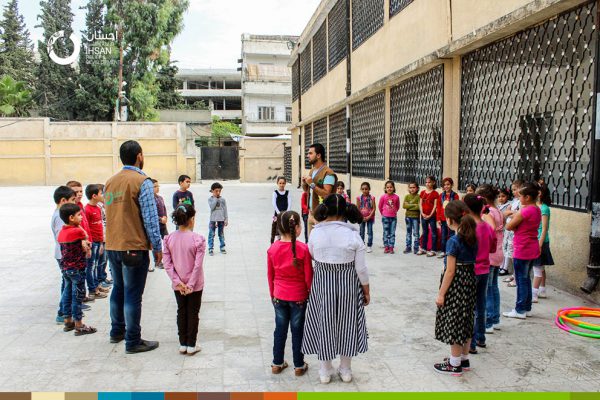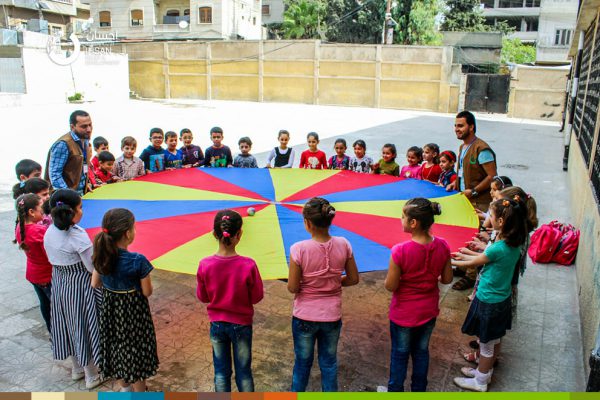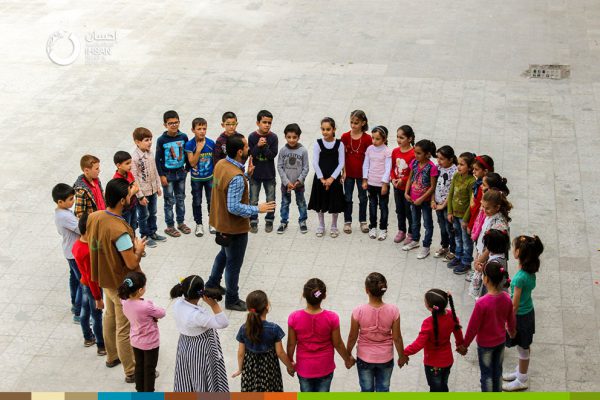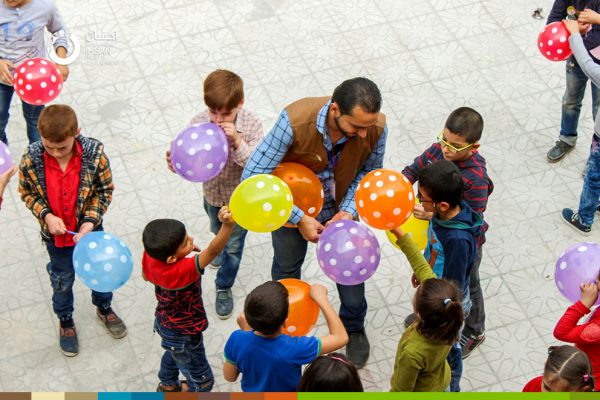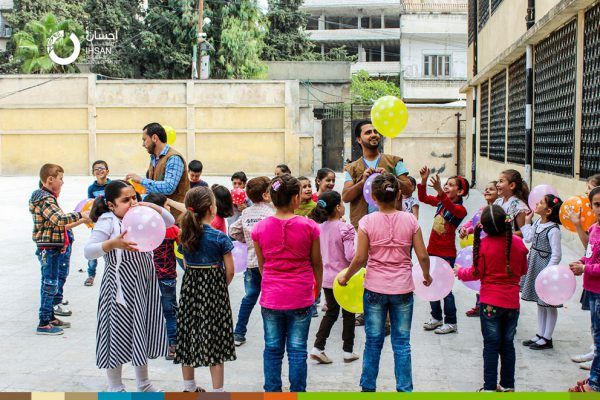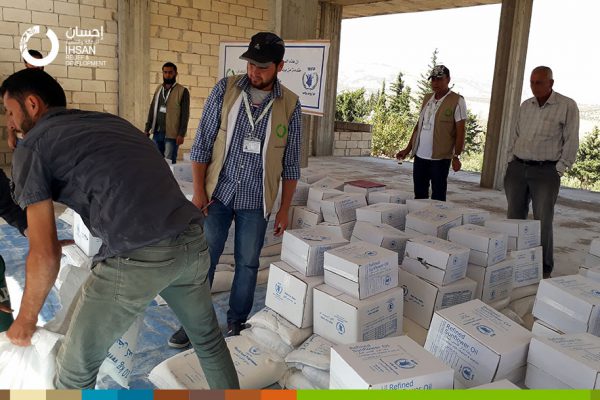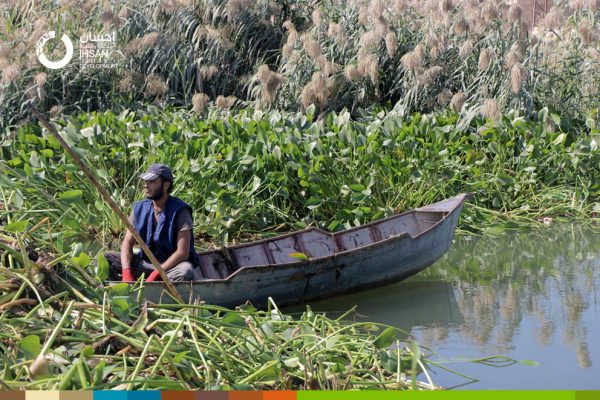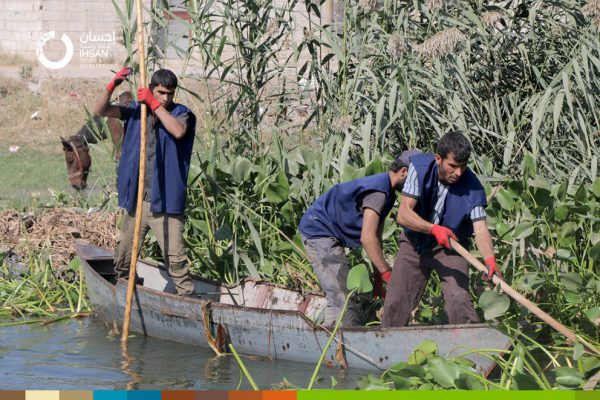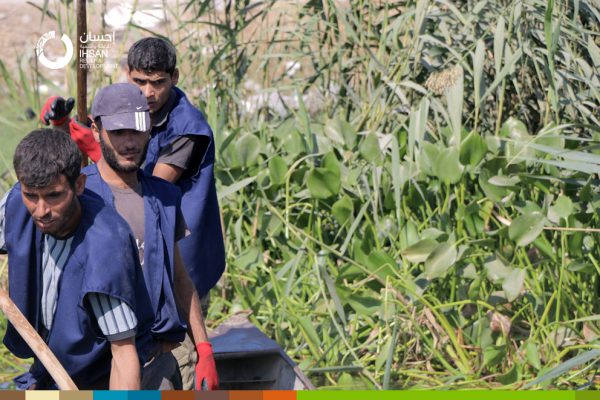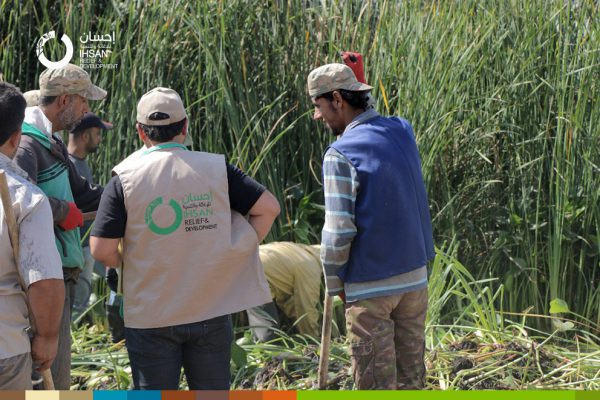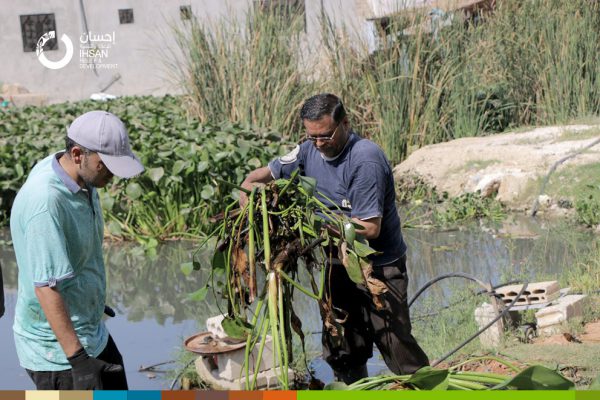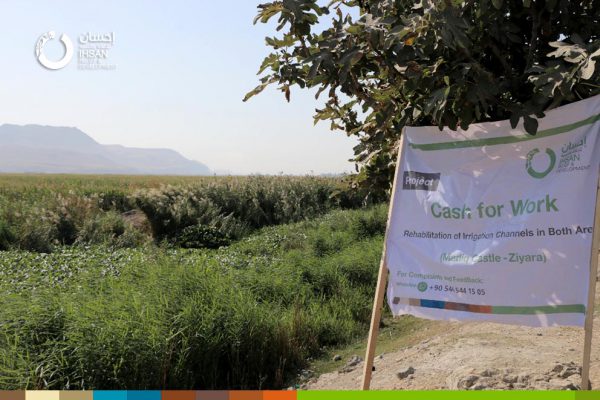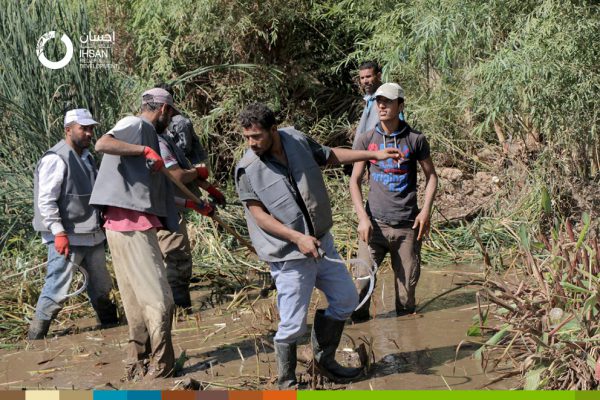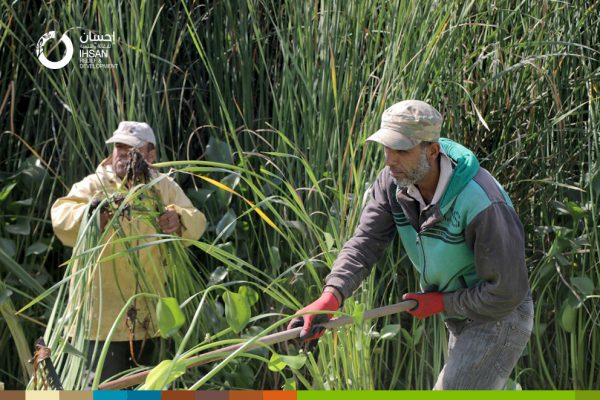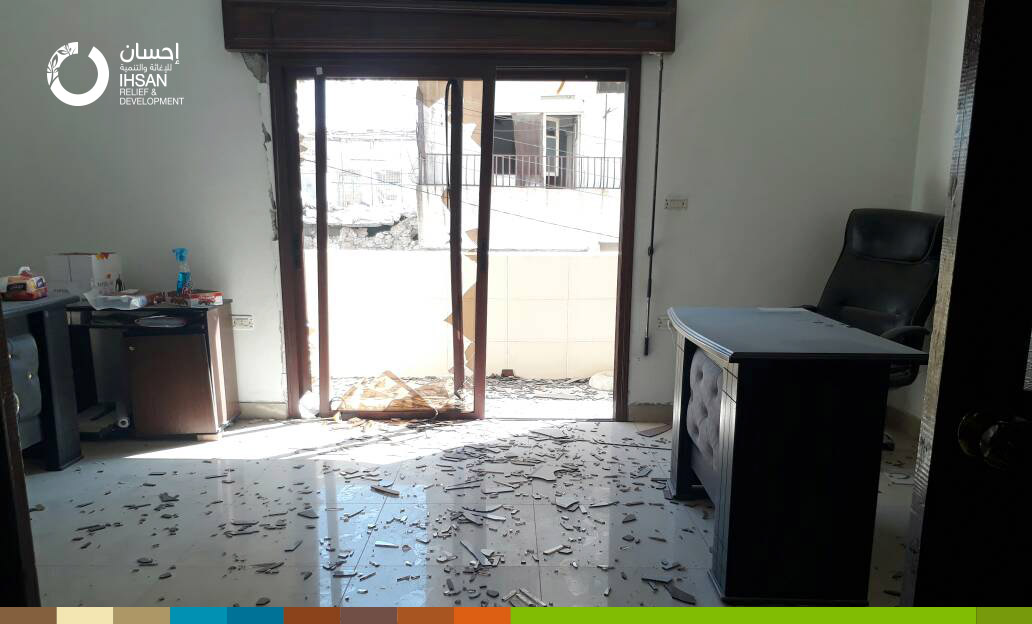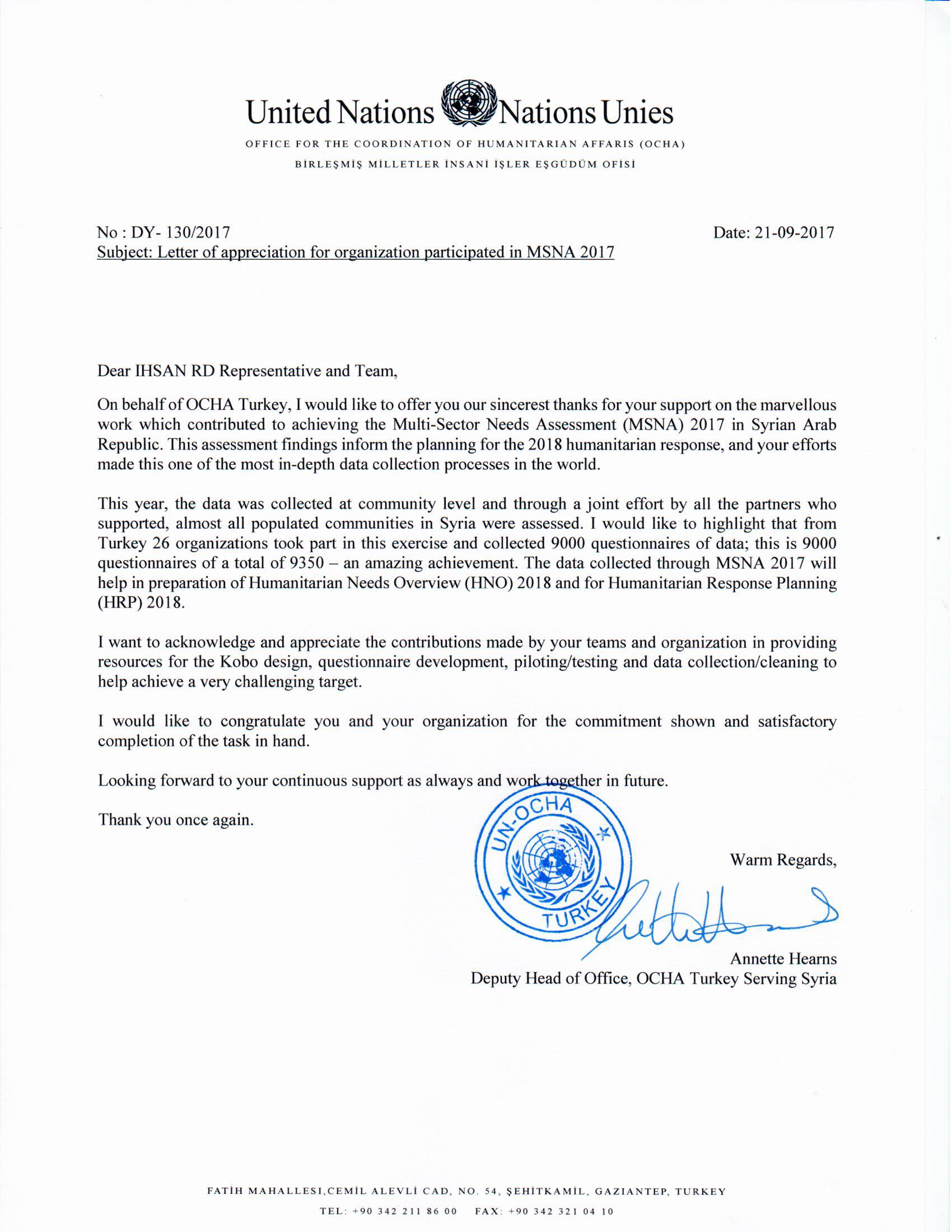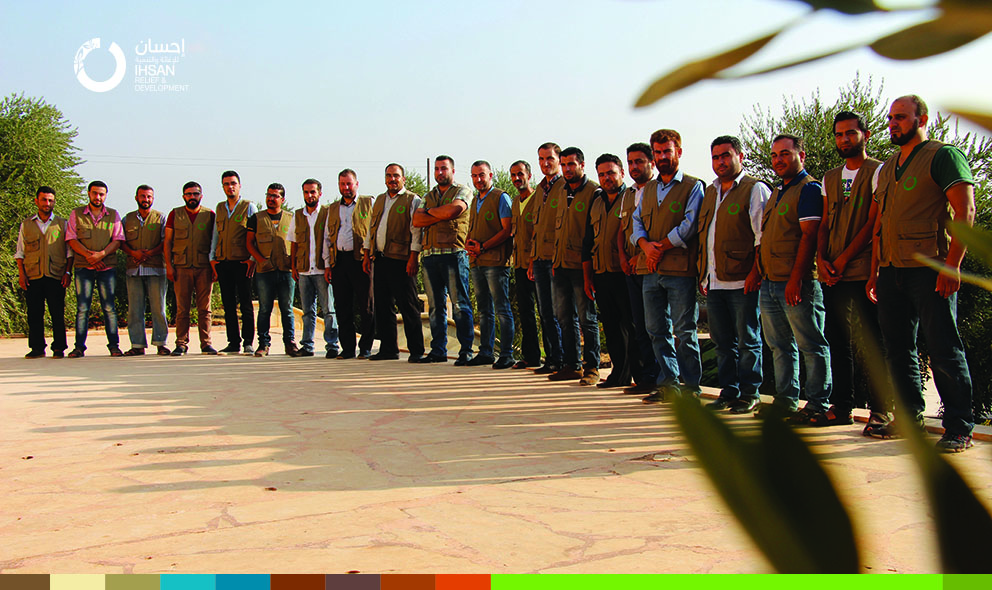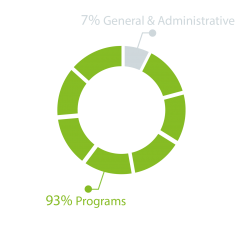Ihsan team in the West Rural of Idlib office has carried out an emergency response to the displaced people from Jisr Al-Shughour to the neighboring villages as a result of the unjust shelling on the city, where more than 1,300 families have been responded and provided with food baskets, which contributed to alleviating the burden of displacement and the difficult situation they suffer from.

In order to reach as many children as possible and provide psychosocial support services, Ihsan Child-Friendly Space in Aramanaz through the mobile team is providing psychosocial support sessions for children and adolescents, as well as awareness sessions on a variety of subjects across several schools, institutes and medical posts in the area.
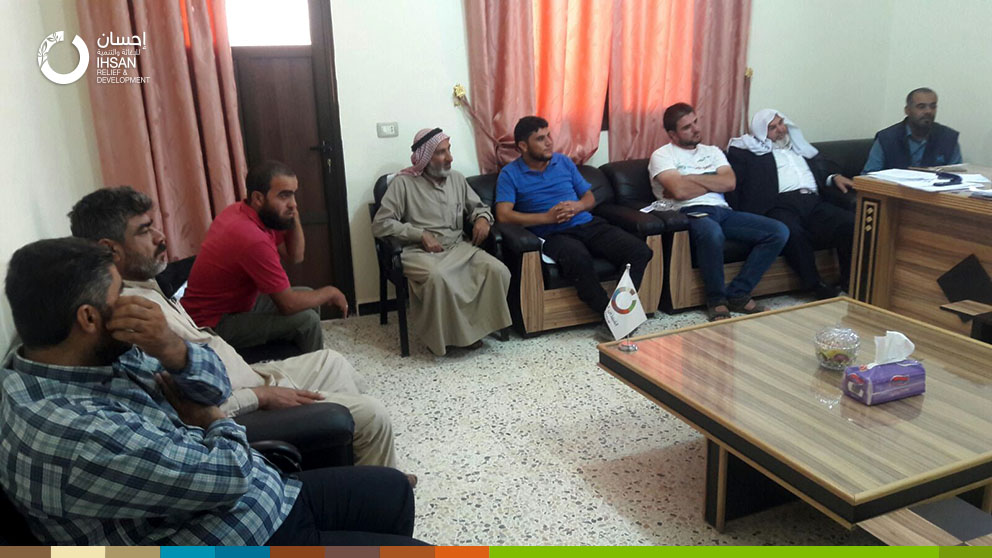
Under the Food Security and Livelihoods Support Program, Ihsan started implementing an agricultural project for the 2017-2018 season in Idleb governorate (Ruj Plain and Saraqip areas) to assist the most needy farmers.
The project will provide support to the agricultural sector in the targeted areas as follows:
– Category I: support olive cultivation.
– Category II: support the cultivation of crops, and winter and summer vegetables.
– Category III: Supporting the cultivation of home gardens for the winter and summer seasons.
Agricultural support inputs will be distributed to the households as well as practical exercises through farmers field schools.

Within the slogan of “Providing a better life for Syrians” and in order to support the families most in need and alleviate their suffering during the difficult humanitarian conditions and ongoing war, Ihsan continues to distribute food baskets to 21,000 families across Sinjar, Azaz and Jisr Al-Shoughor areas. While this comes in partnership with the World Food Program.
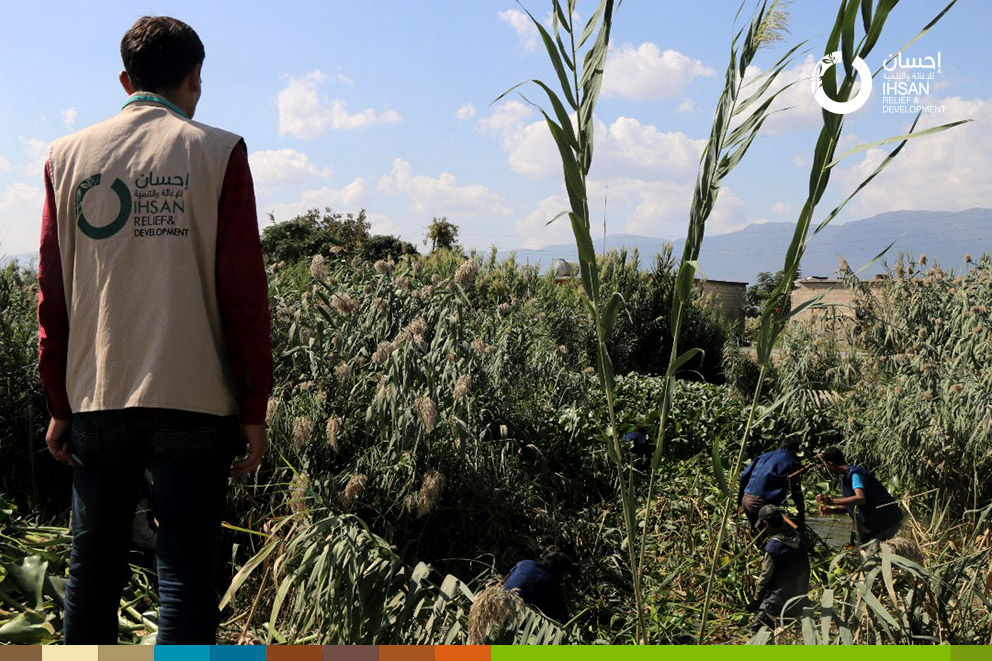
The Al-Ghab Plain area in north-western of Hama governorate has many irrigation channels that contribute to supply water to the neighboring and extended areas along the plain. But, the war circumstances and the inability of the local community to address the problem led to the cessation of access to these areas, where irrigation channels were damaged, causing the detention of water inside.
In response to the appeal of the people in the region, Ihsan launched its new project, which aims to rehabilitate about 35 km of irrigation infrastructure to facilitate water access and continuous flow.
This activity also contributes to securing employment opportunities for 1600 people within the project (Cash for Work)

Office for the Coordination of Humanitarian Affairs
Amman, 5 October 2017
I am appalled by reports of high numbers of civilian casualties due to heavy air attacks in Syria. Hospitals, ambulances, schools and displaced people escaping violence have been targeted by direct air strikes resulting in deaths and injuries of innocent civilians. September was the deadliest month of 2017 for civilians with daily reports of attacks on residential areas resulting in hundreds of conflict-related deaths and injuries.
This week, airstrikes on Ar-Raqqa city killed dozens of people and injured many others. Some 8,000 people remain trapped in the city. Between 19-30 September, airstrikes on residential areas in Idlib killed at least 149 people, the majority of whom were women and children. Attacks on medical facilities are depriving people in need of their right to life-saving medical care. Schools and hospital in Idlib have been forced to close due to fear of being targeted. Three explosions in Damascus city caused the death of 20 people and injured 15 more. Civilian casualties were also reported in Rural Damascus, Hama, Aleppo, and Deir-Ez-Zor.
I would like to praise the phenomenal work carried out by humanitarian workers and in particular national staff. Rescue workers on a daily basis risk their lives to help others.
The UN calls on all parties to the conflict to immediately take all measures to protect civilians and civilian infrastructure throughout Syria. Targeting of civilians and facilities including hospitals and other medical facilities is simply unacceptable and constitute a grave violation of human rights and international humanitarian law and may amount to war crimes. All parties to the conflict must respect their international obligations and act in a way that ensures the protection of civilians and humanitarian workers.
